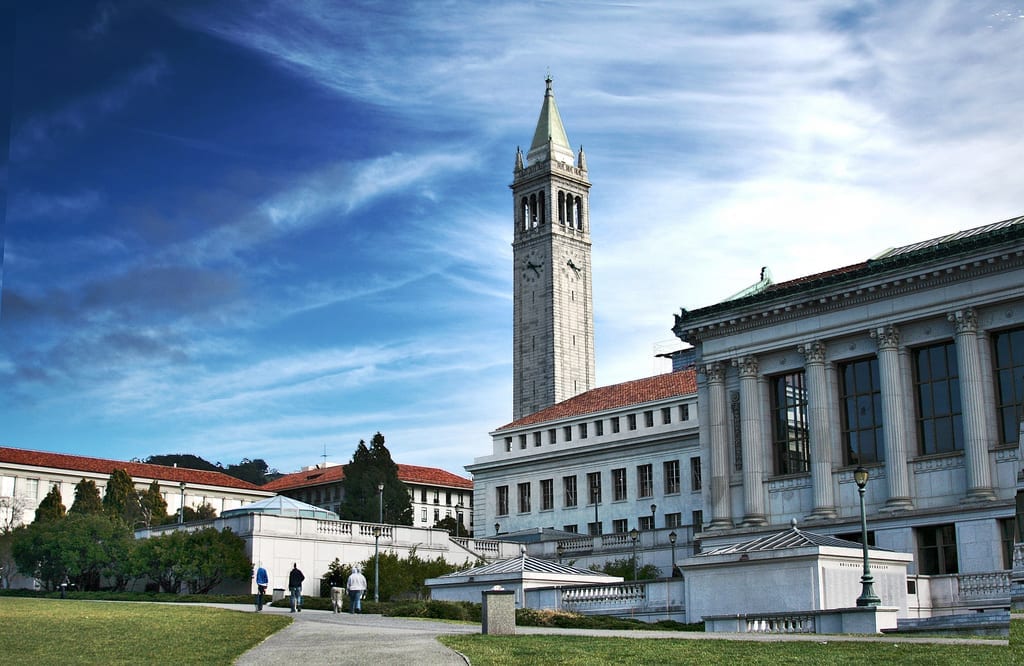The lawsuit was amended to include updated information on pro-Palestine activism, including a “confrontation” that took place inside the home of Erwin Chemerinsky, a prominent First Amendment scholar and the dean of the university’s law school.
Two Jewish advocacy organizations that filed a lawsuit against the University of California at Berkeley over “longstanding, unchecked” antisemitism have amended their complaint to reflect incidences of discrimination that allegedly occurred during pro-Palestine protests.
According to NBC News, the amended complaint was filed in a U.S. District Court for the Northern District of California on May 3. In it, attorneys from the Louis D. Brandeis Center and Jewish Americans for Fairness in Education claim that UC Berkeley has repeatedly failed to enforce its own anti-discrimination policies.
The lawsuit cites several examples of alleged antisemitic acts and rhetoric, including a series of incidents that took place during a February 2024 protest. At the protest, pro-Palestine demonstrators allegedly became violent—with Jewish students reporting that they were intimidated and, in several instances, physically assaulted.
However, the university’s police department only began to intervene after protesters began damaging campus property while attempting to disrupt a speech being delivered by a former member of the Israeli military.

“For many Jews, including many Jewish students and faculty at UC Berkely, a profound connection with the Jewish State of Israel is integral to their Jewish identity,” the Brandeis Center said in a statement detailing the lawsuit. “Excluding Zionists thus effectively excludes Jews.”
The amended lawsuit also claims that the university tolerated antisemitic discrimination against its law school dean, Erwin Chemerinsky.
In March, for instance, Chemerinsky—who is Jewish—invited a group of final-year law students to several dinners at his home. But social media accounts operated by pro-Palestine activists responded by posting a caricature of Chemerinsky on Instagram, which showed the dean holding a knife and form with the words “No Dinner with Zionist Chem While Gaza Starves” running around the image’s periphery.
A student group, Berkeley Law for Palestine, has denied that it circulated such images because Chemerinsky is Jewish. Instead, they claim that they had simply intended to put pressure on Chemerinsky, who—as dean of the law school—has influence within the university administration.
Pro-Palestine protesters at Berkeley have, similar to demonstrators on other college campuses nationwide, demanded that the university divest from its Israel-related financial interests.
Chemerinsky has, in the past, characterized the lawsuit’s allegations as “stunningly inaccurate” and at odds with students’ First Amendment rights.
“The complaint filed by the Brandeis Center paints a picture of the Law School that is stunningly inaccurate and that ignores the First Amendment,” Chemerinsky said in a 2023 statement. “For example, student organizations have the First Amendment right to choose their speakers, including based on their viewpoint.t Although there is much that the campus can and does do to create an inclusive learning environment, it cannot stop speech even if it is offensive.”
Chemerinsky has since become tangentially involved in a Title IX investigation.
The investigation, notes NBC News, centers on a Muslim student’s claim that Chemerinsky’s wife “confronted” her when the student tried to deliver “an unexpected pro-Palestinian speech” at one of the dean’s dinner events.
Somewhat oddly, the third-year student claimed that the couple violated her rights to “free speech” when they asked her to leave Chemerinsky’s home and private property—spaces in which First Amendment protections do not typically apply.
When asked for comment on the amended complaint, Chemerinsky referred NBC News to a statement provided by UC Berkely spokesman Dan Mogulof.
“While most antisemitic expression is—whether we like it or not—protected by the First Amendment, we know that as a university, we must still respond if and when that expression rises to the level of individual harassment and/or discrimination,” Mogulof said.
Sources
Jewish groups add more allegations of antisemitism to their lawsuit against UC Berkeley
Jewish groups sue University of California over ‘unchecked’ antisemitism


Join the conversation!